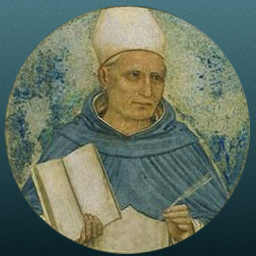Friday 17 March 2017
Marcus Aurelius
The Roman Emperor Marcus Aurelius died on this day in 180 AD.
In last year's online Russell Kirk course which we ran on this blog, I touched on Kirk's familiarity with Stoicism and, in particular, with Marcus's Meditations:
The lesson I learnt from Marcus Aurelius is the performance of duty. Take this passage from the Meditations -the Emperor being on a hard Danubian campaign when he set down these lines: 'In the morning, when thou risests sore against thy will, summon up this thought: "I am rising to do the work of a man. Why then this peevishness, if the way lies open to perform the tasks which I exist to perform, and for whose sake I was brought into the world? Or am I to say I was created for the purpose of lying in blankets and keeping myself warm?" With that admonition I steel myself on January mornings at my ancestral village.
Post here
Oddly, I finished rereading the Meditations last night while waiting to pick up my son from choir practice, quite unaware of its being the eve of Marcus's death. The relationship between Stoicism and Catholicism is a complex one, but the contacts between them are real and many, going far beyond just Kirk's. St John Paul II's reflections in Fides et Ratio on the relationship between classical philosophy and Catholicism are apposite here:
One of the major concerns of classical philosophy was to purify human notions of God of mythological elements. We know that Greek religion, like most cosmic religions, was polytheistic, even to the point of divinizing natural things and phenomena. Human attempts to understand the origin of the gods and hence the origin of the universe find their earliest expression in poetry; and the theogonies remain the first evidence of this human search. But it was the task of the fathers of philosophy to bring to light the link between reason and religion. As they broadened their view to include universal principles, they no longer rested content with the ancient myths, but wanted to provide a rational foundation for their belief in the divinity. This opened a path which took its rise from ancient traditions but allowed a development satisfying the demands of universal reason. This development sought to acquire a critical awareness of what they believed in, and the concept of divinity was the prime beneficiary of this. Superstitions were recognized for what they were and religion was, at least in part, purified by rational analysis. It was on this basis that the Fathers of the Church entered into fruitful dialogue with ancient philosophy, which offered new ways of proclaiming and understanding the God of Jesus Christ.
Marcus Aurelius is not a Catholic and Catholicism is not Stoicism. But while recognising that, we should be equally suspicious of attempts by modern atheistic Humanism to make him and other ancient philosophers a simple 'fellow traveller'.
If any ask, Where hast thou seen the Gods or how hast thou satisfied thyself of their existence that thou art so devout a worshipper? I answer: In the first place, they are even visible to the eyes. In the next, I have not seen my own soul either, yet I honour it. So then from the continual proofs of their power I am assured that Gods also exist and I reverence them.
Meditations, 5.28. Full English translation here.
Subscribe to:
Posts (Atom)

